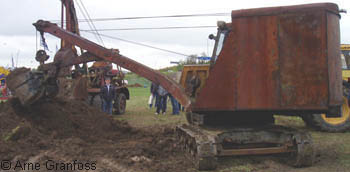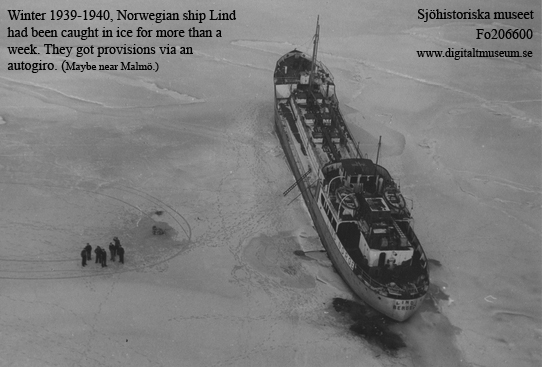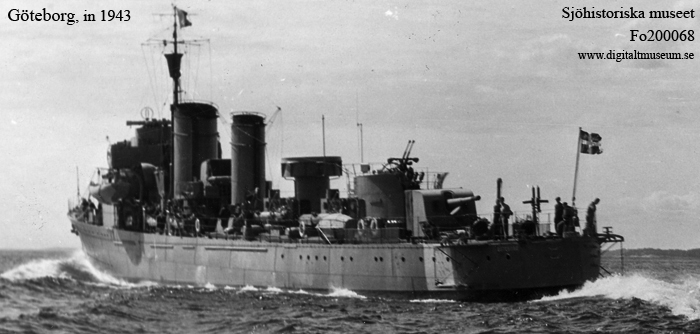Sweden's situation - 2

 UNDER CONSTRUCTION Version 0.41
UNDER CONSTRUCTION Version 0.41
|
Sweden in World War II - across borders
|
 |
![]()

The winter 1940-1941 was also very cold. The iron ore traffic from Luleå in northern Sweden had to pause from late October, when the ice breakers no longer could break channels through the sea ice. Even the Kiel channel had to close at periods. No iron ore could be exported via Narvik, since the Germans destroyed the harbour in late April 1940 when the Allies attacked Narvik. [s63]
![]()
![]()
Of the Swedish 'lejdtrafiken' from late 1940, the granted safe conduct for a very limited number of Swedish merchant ships through the German minefields in Skagerak, every fourth ship was a tanker with oil to Sweden. This was very important for Sweden, and positive both for Germany and the Allies. [s59]
The Swedish navy needed plenty of oil for the neutrality watch, convoy escort, exercises et cetera. There was a stock of oil, but that was spared in eventuality of war. [s59]

For Germany it was helpful that the Swedish navy had enough oil, since Swedish naval ships often escorted German supply ships in Swedish waters when they sailed to Finland with war supplies. [s59]
For the Allies it was important too to permit the oil transports to Sweden, so the Swedish armed forces could be operative - both to lower the risk of a German invasion, and perhaps be an ally later during WWII. [s59]

![]()
![]()
The German transit through Sweden by trains was easily seen and criticized by many, so the Swedish goverment accepted transports of troops and war equipment with ships escorted by Swedish naval ships. [s59]
![]()
The Swedish air force was put on alert now and then, among others in February 1942 when there were signs of a German attack from Norway perhaps southwards to Gothenburg. This was a pressure on both men and machines - for example the available fuel for planes in war action would only last a few weeks. [s75]
![]()
One political balance act took place in the autumn and winter of 1942-1943, regarding the two Norwegian ships Dicto and Lionel in Gothenburg in Sweden [s58]. (Read more under "Norwegian ships in Sweden".)
The Allies demanded that Sweden should allow the ships to be sailed to Britain, or else they would prevent Sweden from imports through the safe-conduct traffic [s58].
The Germans demanded that the ships were kept in Gothenburg, or else they would stop the safe-conduct traffic [s58].
The Swedish government had three weeks with negotiations, and finally agreed to let the ships sail to Britain [s58].
Then the British allowed the ships to remain in Gothenburg for the rest of the war [s58].
The Germans stopped the safe-conduct traffic in January 1943. It was stopped until May 1943. [s58]
![]()
In the autumn of 1943 some Danish politicians were worried about a Communist coup in Denmark at the end of the war. Sweden was asked to land two divisions of Swedish soldiers in Denmark to aid the Danish government. [s58]
![]()
One more example of demands regarding Swedish trade with other countries. In early 1944 the Allies offered Sweden the delivery of 200 Spitfires, if Sweden radically reduced the export of ball bearings to Germany. The USA expressed that they were prepared to stop the export with all available means. Germany offered 200 Messerschmitts to secure the same number of ball bearings that Sweden had exported to them in 1943. Sweden said no to both ideas in April 1944, and followed the present trade agreements. [s58]
![]()
There were four other neutral countries in Europe: Ireland, Portugal, Spain and Switzerland. Some examples as a comparison: Ireland was anti-British and refused among others British radio stations in southern Ireland during the battle of the Atlantic, Portugal was pro-German at least the first years of the war, and Spain exported iron ore and metals and also sent regular troops to support the German offensive in the east. Switzerland (like Sweden surrounded by Germany and German-friendly nations) permitted German train traffic to and from Italy, and Germany bought weapons and optical instruments for the military from Switzerland. Transactions were strictly business, and Germany paid with among others coal, coke and fertilizers. [s63]
2019-04-07. www.granfoss.se. Text/pictures: Arne Granfoss